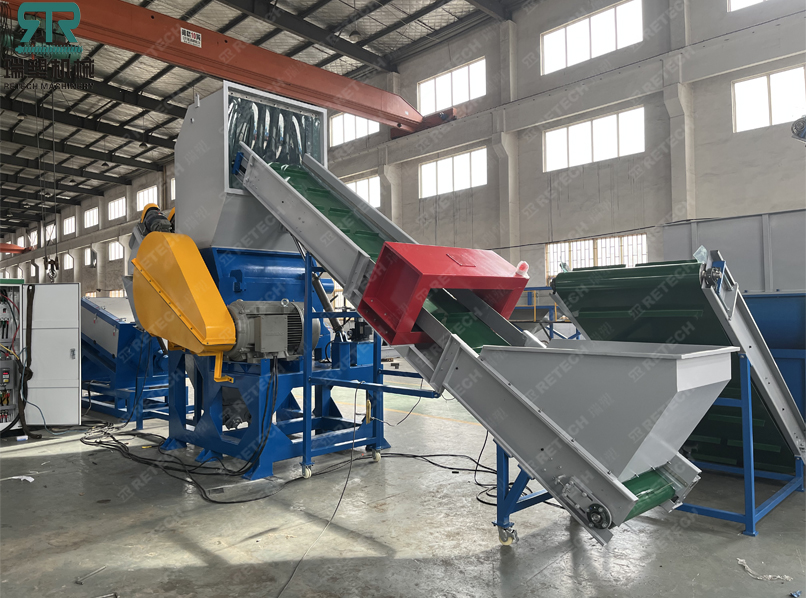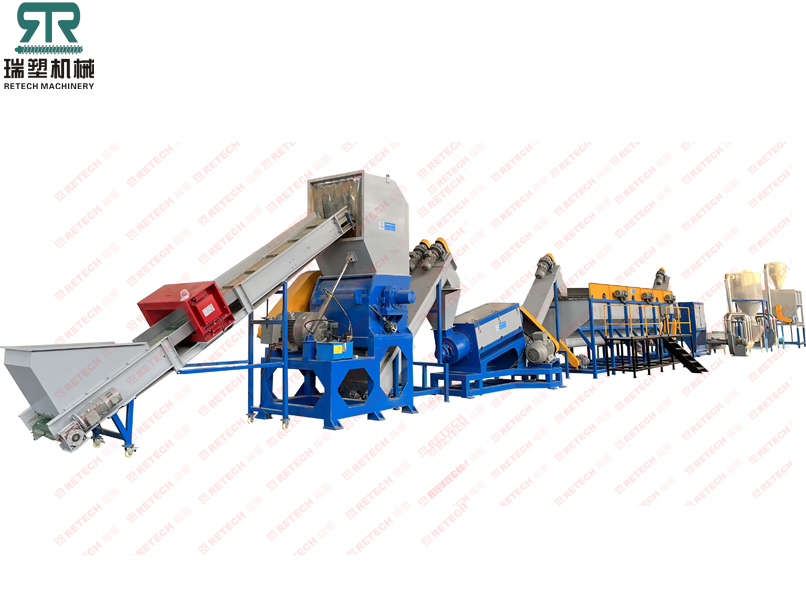In today's world, the issue of plastic waste has become a pressing concern. Plastic film, in particular, poses a significant challenge due to its widespread use in packaging, agriculture, and various other industries. However, with the development of advanced recycling technology, plastic film recycling lines are playing a crucial role in reducing waste and protecting the environment.

Plastic film, including materials such as polyethylene and polypropylene, is commonly used in the form of bags, wraps, and packaging. Unfortunately, much of this material ends up in landfills, where it can take hundreds of years to decompose. The accumulation of plastic film waste not only contributes to environmental pollution but also poses a threat to wildlife and ecosystems.
Recycling plastic film is essential for mitigating the harmful impact of this waste on the environment. By diverting plastic film from landfills and incineration, recycling helps conserve natural resources, reduce energy consumption, and minimize greenhouse gas emissions. Furthermore, recycling plastic film supports the circular economy by promoting the reuse of materials and reducing the demand for virgin plastic production.
Plastic film recycling lines are at the forefront of the effort to address the challenges posed by plastic film waste. These advanced facilities are equipped with state-of-the-art machinery and processes designed to efficiently collect, sort, clean, and process plastic film for recycling. The use of specialized washing lines is particularly crucial in ensuring the effective cleaning and preparation of plastic film for reuse.
The plastic film recycling process begins with the collection and sorting of post-consumer and post-industrial plastic film waste. Once sorted, the plastic film undergoes a thorough cleaning process in the washing line, where it is washed, rinsed, and dried to remove contaminants such as dirt, debris, and residual substances. After cleaning, the plastic film is shredded into small pieces and then melted and extruded into pellets, which can be used to manufacture new products.
Plastic film recycling lines offer numerous benefits in the effort to reduce waste and protect the environment. By effectively cleaning and processing plastic film waste, these facilities enable the recovery of valuable materials, thereby reducing the need for virgin plastic production. Additionally, the use of plastic film recycling lines helps to create new economic opportunities, promote sustainable practices, and support the development of a more circular and resource-efficient economy.

While plastic film recycling lines have made significant strides in addressing plastic film waste, there are still challenges to overcome. These include the need for improved collection and sorting infrastructure, as well as the development of more efficient and cost-effective recycling technologies. However, with ongoing advancements in recycling innovation and the growing awareness of environmental issues, there are also opportunities to further enhance the effectiveness of plastic film recycling lines and expand their impact.
Plastic film recycling lines play a vital role in reducing waste and protecting the environment. By effectively cleaning and processing plastic film waste, these facilities contribute to the conservation of resources, the reduction of pollution, and the promotion of a more sustainable and circular economy. As the demand for plastic film recycling continues to grow, the development and expansion of recycling lines will be essential in driving positive change and creating a more sustainable future for generations to come.